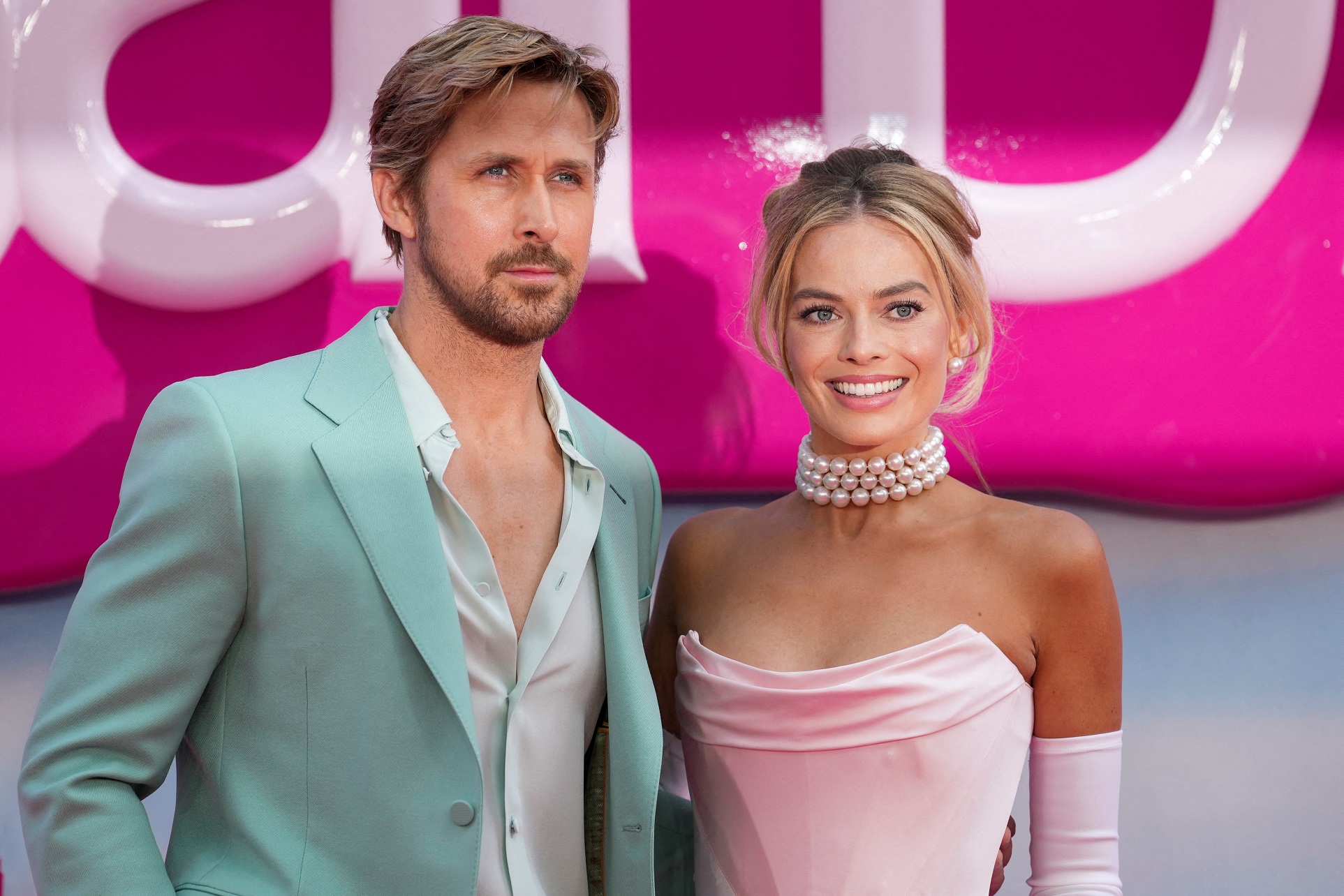

At least, this is what I told myself last Friday, as I donned a long frilly pink dress, applied pink lipstick and sparkly pink eye shadow, and curled my pink hair, ready for a trip to the movies. Arm in arm with several equally pink friends, I sat in the darkened cinema, expecting a playful, glittery romp through Barbieland, but finding so much more.
I was never a fan of Barbie as a child. I never had the option of being one—Barbies were too expensive, and my parents, barring a few shoddy dollar-store exceptions at birthdays and Christmas, thought toys were a waste of money.
Yet I was thrilled to partake in the cultural phenomenon that is Barbie, a fantasy comedy film directed by Greta Gerwig.
You’d have to be living under a (plastic fantastic) rock to have missed the film’s insidiously pink marketing — the megawatt smiles from stars Margot Robbie and Ryan Gosling, the sparkles, the glitter, the ubiquitous Barbie font. And, while not perfect, the film certainly lives up to the hype.
Barbie is a hyperactive, candy-coloured tale of self-discovery and what it means to be human — what it means to be a woman, a mother, a daughter. The film opens with Helen Mirren wryly explaining why Barbie and the other residents of Barbieland have solved feminism. After all, Barbie can be anything—a scientist, teacher, lawyer or president. It follows that women can also be anything. ("We fixed everything so all women in the real world are happy and powerful!")
Yet why is Barbie plagued by existential threats, thoughts of death, flat feet, and cellulite? According to soothsayer and renowned wise doll "Weird Barbie"(Kate McKinnon), she must travel to the real world and find her human in order to sort out the whole mess. Ken’s just along for the ride.
Barbie, according to Mattel’s lore, was created by Ruth Handler because she realised her daughter Barbara liked to imagine grown-up lives for her dolls, instead of treating them like perpetual babies in need of mothering.
And herein lies the crux. With her constant career changes and iterations, Barbie has always been an aspirational figure to girls.
But, according to many, she has also curtailed their dreams and desires, most prominently by promoting an unrealistic body image for young girls.
Gerwig addresses this duality; upon arriving in California, Barbie is forced to realise she is not as inspirational as she once believed. As sullen teenager Sasha puts it, "you’ve been making women feel bad about themselves since you were invented!".
Margot Robbie is an understated phenomenon, brimming with naive optimism. She is "Stereotypical Barbie", with big blonde hair, an effervescent personality, sparkling eyes and a constant lip-glossed smile. Her Barbie is a plastic vessel for little girls to mould into their own fantasies.
But in the Real World, she realises she’s the subject of much more insidiously sexist fantasies thanks to men and that dreaded word — patriarchy.
To me, Barbie’s core message is one about the impossibility of fulfilling the ideals of "Girl-boss" capitalist feminism. Sure, women (and Barbie) can be lawyers, scientists, or presidents.
But true happiness is not found through professional excellence and external beauty alone, but through the warmth of human connection, the messy transition from girlhood to womanhood, and the internal satisfaction of knowing one is enough as one is. Ken is perfect as "Just Ken".
One of my favourite moments is when Barbie, overwhelmed by the sheer cacophony and unfulfilled expectations of the Real World, sits on a bench and experiences the gamut of human emotion for the first time. Through tears, she smiles at an old woman, complimenting her on her beauty. The quintessential ageless icon of femininity and beauty discovers the magic in ageing — in the wealth of experience the decades bring, and in the marks and wrinkles they leave behind.
I must highlight the gorgeous world-making, courtesy of Sarah Greenwood’s brilliant production design and Jacqueline Durran’s inspired costuming. The magenta plastic world of Barbieland is genius, with static waves, engineless vehicles, empty glasses and waterless showers.
The bubblegum pop soundtrack is the perfect accompaniment to this tale—I have been listening to Ryan Gosling’s "I’m Just Ken" on repeat ever since.
Barbieworld turns our patriarchal reality on its head. All the plastic men—the army of Kens— are utterly useless, existing only for decorative purposes or light comedic relief. What’s more, while the Barbies stick together despite all their differences, the Kens swiftly break out into outright war, fuelled by their narcissism, competitiveness and sheer stupidity.
Gosling is an absolute delight. His Ken is naive, vacuous, desperately in love with Barbie, and, truth be told, rather pathetic. His journey from aggrievement to patriarchal "enlightenment" uncannily replicates the trajectory of many real-life men when faced with the realisation that women’s lives don’t revolve around them.
Ken’s interpretation of patriarchy is hilarious — a tanned, bimbofied vision of American masculinity and consumerism that rapidly unravels in Barbieland. Gerwig brilliantly skewers the silliness, flimsiness, and self-centredness of antifeminist and misogynistic movements.
Unsurprisingly, a great many angry men on the internet have taken exception to this. Conservative manchild Ben Shapiro decried the film as "angry feminist claptrap that alienates men from women" in an unhinged 43-minute-long rant, while alt-right activist Jack Posobiec labelled Barbie a "man-hating woke propaganda fest", bashing the film for portraying the Kens as less intelligent than the Barbies.
I can’t lie, it’s rather entertaining seeing so many men upset about their sex being portrayed as vacuous and superfluous. How the tables have turned.
The movie is not without its flaws. The mother/daughter storyline between Gloria and Sascha is never fully developed, and is somewhat colourless compared with the exuberance of the Barbies.
America Ferrera’s monologue on feminism and motherhood is too lengthy and redundant (I went to the toilet and came back to find it still going on). And it’s all a little too saccharine, even for sweet-toothed Barbie lovers.
Nevertheless, Barbie is a fun, funny, well-made film, with a genuine heart and much to say.
As Devan Coggan, writing for EW puts it, "The Barbie movie could’ve been another forgettable, IP-driven cash grab".
But it isn’t. Beyond the plastic, glitter and neon pink, Barbie has much to say about the complexities and contradictions of womanhood.
Now, you’ll have to excuse me — I’m off to watch Oppenheimer.
- Jean Balchin, a former English student at the University of Otago, is studying at Oxford University after being awarded a Rhodes Scholarship.













